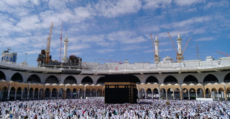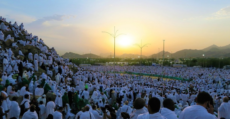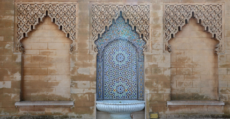In the name of Allāh, ar-Raḥmān (the most merciful), ar-Raḥīm (the bestower of mercy).
Abu ‘Uthmān an-Nahdi said,
The Salaf (pious predecessors) used to venerate three [sets] ten of days: The last ten days of Ramadān, the first ten days of Dhul Ḥijjah and the first ten days of Muḥarram. [1]
Al-Ḥafiẓ ibn Ḥajr al-‘Asqalānī said,
It appears that the preference of these [ten] days is due to the gathering of the main acts of worship in Dhul Ḥijjah are praying ṣalāh, fasting, giving charity, and Ḥajj which are restricted to these days. [2]
Shaykh al-Islām Ibn Taymiyyah was asked the following question: “which is better, the first ten days of Dhul Ḥijjah or the last ten days of Ramadān?” He answered saying,
The first ten days of Dhul Ḥijjah are better than the last ten days of Ramadān, but the last ten nights of Ramadān are better than the first ten nights of Dhul Ḥijjah. [3]
Al-Ḥafiẓ Ibn Rajab said,
What is correct is that the first ten days and nights of Dhul Ḥijjah are better than the last ten days of Ramadān except for the night of Laylat al-Qadr. [4]
From those who used to fast the ten days was ‘Abdullah ibn ‘Umar, radiaAllāhu ‘anhu, and it was stated that the majority of the scholars recommend fasting of these days. [5] [6]
Al-Ḥafiẓ an-Nawawi said,
“Fasting these days is highly recommended. There are no days like it, especially the day of ‘Arafah.” [7]
Al-Ḥafiẓ Ibn Rajab said,
This ḥadīth shows that deeds in the (first ten) days of Dhul Ḥijjah are more beloved to Allāh than deeds in any other days of this dunya without any exception to that. If they are more beloved to Allāh then they are more virtuous with him. This ḥadīth has also been narrated with the following wording: ‘There are no days in which deeds are better than the ten days.”
It was narrated with some doubts in the wording as to whether it was “more beloved” or “better”.
If the deeds in the ten days [of Dhul Ḥijjah] are better and more beloved to Allāh than deeds in the rest of the entire year, then deeds performed within those days – even if they are superior.
Concerning this they (the Companions) said,
O Messenger of Allāh, not even jihād in the path of Allāh?
He replied,
Not even jihād in the path of Allāh.
He then made the exception of one type of jihād which is the best of jihād as for the remaining types of jihād, then definitely deeds in the [first] ten of Dhul Ḥijjah are better and more beloved to Allāh, the exalted and majestic, than that.” [8]
Al-Ḥafiẓ Ibn Rajab said,
It is recommended to stand the nights in ṣalāh (i.e. qiyām al-layl) during the first ten days of Dhul Ḥijjah. Imām ash-Shaafi’ī, as well as other scholars, have said that it is recommended to do so.
Sa’īd ibn Jubayr narrated a ḥadīth in which he said that whenever the first ten days of Dhul Ḥijjah began, Ibn ‘Abbas, radiaAllāhu ‘anhu, would exert himself to the limits of his ability.
It has also been narrated upon Ibn ‘Abbās that he said,
Do not turn out your lamps during the nights of the first ten days of Dhul Ḥijjah.
This is because he was especially fond of ibādah [during these days].” [9]
Footnotes
[1] Narrated by Anas Ibn Malik; Collected by Tirmidhee & Ibn Maajah
[2] Fath-ul-Baari 2/534
[3] Majmoo’ fatawaa ibn taymiyyah (25/154)
[4] Lataa’if al-Maarif pg.522
[5] Ibid
[6] Translater Note: Fasting is only up to the 9th of Dhul-Hijjah. The 10th is on Eid-Adha which is not permissible to fast.
[7] Sharh Saheeh Muslim 4/328
[8] Lataa’if al-Ma’aarif (520-521)
[9] Lataa’if-ul-Ma’aarif (462)






Indeed this is the Best Islamic Site have ever visited for non Arabic Audience.
Have learnt a lot since I started visiting it. I am from Uganda.
Quite impressive. However, help input Arabic version of quotations to drive home the authenticity of your discussions